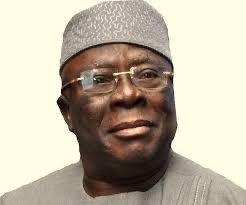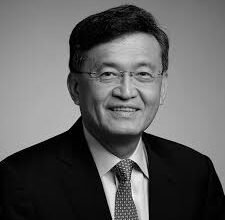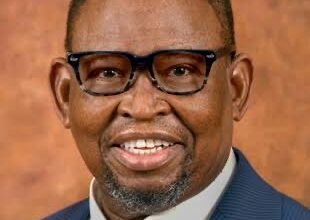Malcolm X Biography: Real Name, Career, Net Worth,Age 2025
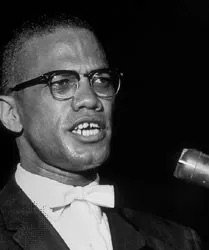
Malcolm X Biography: Malcolm X is one of the most recognized names in the history of the civil rights movement. His contributions to the fight for equality, justice, and Black empowerment continue to inspire millions around the world. From his early days of hardship to his rise as a leader and activist, Malcolm X’s journey is a story of transformation, strength, and determination.
In this biography, we will explore his life in great detail, providing insights into his family, career, net worth, and legacy, including the significant impact he still has in 2025.
Who is Malcolm X?
Malcolm X Biography: Malcolm X was not just an activist but a visionary who challenged the very system of oppression to which many African Americans were subjected. Known for his bold and uncompromising stance on racial equality, he became a symbol of strength and resilience in the face of injustice. Today, in 2025, his legacy continues to influence global movements for justice and equality.
With an estimated net worth of $2 million (adjusted for inflation), Malcolm X’s estate has grown since his death, with his work still being celebrated through his writings, documentaries, and films. Despite the challenges he faced throughout his life, Malcolm X’s message of Black pride, unity, and self-determination lives on in the hearts of many.
Early Life and Background
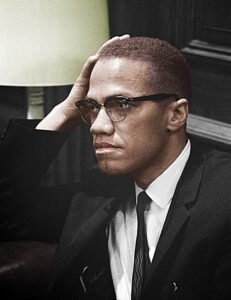
Full Name: Malcolm Little
Born: May 19, 1925, Omaha, Nebraska, USA
Died: February 21, 1965, New York City, USA
Age at Death: 39
Occupation: Civil Rights Leader, Activist, Minister, Author
Net Worth: Estimated $2 million (adjusted for inflation)
Malcolm X was born to Earl and Louise Little in Omaha, Nebraska, in 1925. He came into the world during a time of great racial tension in the United States. His father, Earl Little, was a preacher and a follower of Marcus Garvey, a Black nationalist leader who promoted Black self-reliance.
Unfortunately, Earl Little was murdered when Malcolm was only six years old. This event had a lasting impact on Malcolm as he grew up in an environment of hardship and racial hostility.
Malcolm’s mother, Louise, struggled to support her family after his father’s death. She was eventually institutionalized, leaving Malcolm and his siblings in the care of various foster homes. Throughout his childhood, Malcolm experienced the effects of systemic racism, which shaped his outlook on life.
By the time he reached his teenage years, Malcolm had moved to Boston, where he became involved in criminal activities. He later moved to New York City and continued his life of petty crime, which led to his arrest in 1946.
Malcolm X Biography Turning Point: Life in Prison
In 1946, Malcolm was arrested for burglary and sentenced to ten years in prison. It was during his time behind bars that he underwent a profound transformation. While in prison, Malcolm discovered the teachings of the Nation of Islam (NOI), a religious group that promoted Black self-reliance, economic independence, and the rejection of white-dominated society.
Malcolm found solace in the teachings of NOI leader Elijah Muhammad. He became deeply committed to the religion and changed his name to “Malcolm X,” replacing his last name “Little,” which he believed was a symbol of his enslaved ancestors. The “X” represented his lost African heritage. Prison gave Malcolm the space and time to grow intellectually and spiritually, and he dedicated himself to learning about history, philosophy, and religion.
During his time in prison, Malcolm also took the opportunity to develop his speaking skills. His passion and intelligence became apparent, and he began to write letters and engage in debates with fellow prisoners, all of which helped prepare him for his future role as a public figure.
Rise to Prominence: Leader of the Nation of Islam
Malcolm X was released from prison in 1952 after serving six years of his sentence. Upon his release, he immediately became involved with the Nation of Islam, quickly rising to prominence within the organization. He was appointed as a minister and spokesperson, traveling around the country to spread the message of the Nation of Islam.
Malcolm’s speeches resonated with many African Americans who felt disenfranchised by the system of segregation and racism. He was a powerful speaker who used his own life experiences to illustrate the harsh realities of racism. He was unapologetically assertive in his beliefs, which made him both a hero to many and a controversial figure.
One of the key messages Malcolm X promoted was that African Americans should embrace their heritage and take pride in their Blackness. He argued that Black people should not seek approval from white society but instead focus on building their communities and businesses. He believed in the importance of economic self-sufficiency and the idea that Black people should have control over their destinies.
Malcolm X’s bold and confrontational approach to the civil rights movement contrasted sharply with that of other leaders like Martin Luther King Jr., who advocated for nonviolence. While King believed in peaceful protest, Malcolm X famously stated, “By any means necessary,” emphasizing that Black people had the right to defend themselves and use force if needed to achieve justice.
A Shift in Perspective: Pilgrimage to Mecca
In 1964, Malcolm X made a life-changing pilgrimage to Mecca, where he performed the religious rites of Hajj. This journey greatly impacted his views on race and religion. While in Mecca, Malcolm saw Muslims of all races, nationalities, and backgrounds praying together in unity. This experience challenged his previous beliefs about racial separation and opened his eyes to the possibility of racial unity.
After his return from Mecca, Malcolm X publicly embraced Sunni Islam and began advocating for racial unity. He formed his organization, the Organization of Afro-American Unity (OAAU), which sought to unite African Americans and other oppressed groups around the world. He continued to push for human rights and equality, focusing not only on issues of race but also on global injustice.
The Assassination of Malcolm X
Malcolm X’s life came to a tragic end on February 21, 1965. He was assassinated while preparing to speak at the Audubon Ballroom in New York City. The assassins, believed to be members of the Nation of Islam, who had grown increasingly hostile toward Malcolm after his departure from the organization, shot him multiple times. Despite efforts to save him, Malcolm X died from his injuries at the age of 39.
His death shocked the nation and the world, but it also solidified his place as one of the most influential figures in American history. Malcolm X’s teachings continue to inspire movements for justice, equality, and human rights to this day.
Personal Life: Family and Spouse
Malcolm X’s personal life was deeply intertwined with his public life. In 1958, he married Betty Shabazz, a fellow member of the Nation of Islam. Betty was a schoolteacher and an activist in her own right. Together, they had six children: four daughters (Attallah, Qubilah, Ilyasah, and Malikah) and two sons (Malcolm Jr. and another son who died shortly after birth).
Betty Shabazz became an important figure after Malcolm’s death. She dedicated her life to raising their children and preserving Malcolm’s legacy. Betty herself became an advocate for civil rights and social justice, continuing the work that Malcolm had started.
Legacy and Net Worth
Malcolm X’s legacy is undeniable. He is considered one of the most significant African American leaders of the 20th century. His writings, speeches, and ideas continue to resonate with people worldwide, especially those fighting for social justice and racial equality.
As of 2025, Malcolm X’s net worth is estimated to be around $2 million, which is largely attributed to his autobiography, which continues to be a bestseller. His estate generates income from book sales, film adaptations, and other media projects that help keep his memory alive.
Conclusion: Malcolm X’s Enduring Influence
Malcolm X’s life was filled with challenges, but it was also a story of incredible transformation. From a troubled youth involved in crime to a revolutionary leader, his journey is a testament to the power of personal change and the impact of one individual in shaping history. His legacy continues to inspire movements for justice, equality, and human rights across the globe.
In 2025, as we reflect on his life, we see that his words and actions still hold relevance in today’s society. His call for racial unity, Black empowerment, and resistance against oppression is just as vital now as it was during his lifetime.
Call to Action: Learn more about Malcolm X and his powerful journey. Explore his autobiography, watch documentaries about his life, and get involved in the fight for justice and equality today. Malcolm X’s story is far from over – it lives on in each of us.

